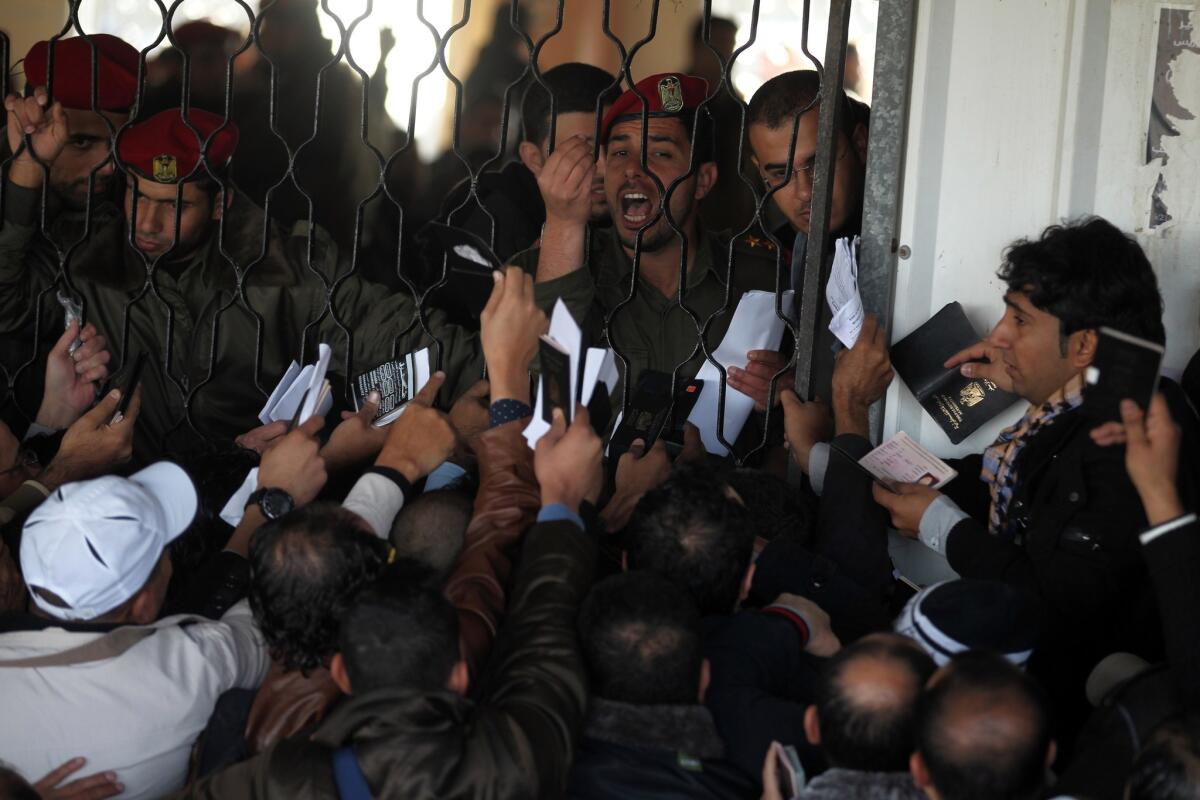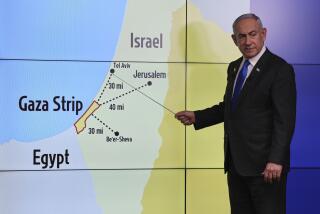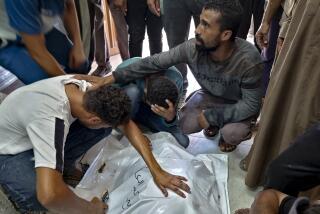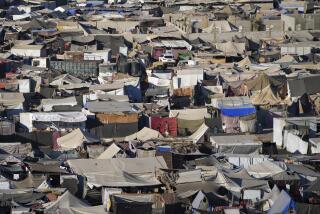Four months into truce, tensions remain along Gaza border

The border between Israel and the Gaza Strip remained tense Sunday following attacks over the weekend that underscored the fragile situation four months after the summer’s war between Israeli troops and Hamas.
A rocket launched into Israel on Friday drew an Israeli airstrike in Gaza, the first since an August cease-fire, and the two sides traded strong rhetoric even as efforts were made to avoid an escalation.
During a visit to Israel’s south Sunday, Defense Minister Moshe Yaalon said the projectile, the third fired into Israel since the cease-fire, was launched by a rogue Palestinian organization but that that factor was irrelevant. “It is clear that Hamas is responsible for what happens in Gaza,” he said of the militant group that rules the coastal enclave.
Yaalon added that Israel had sent Hamas a message through Egyptian contacts as well as with an airstrike to convey that it would not tolerate rocket fire while signaling its interest in calm.
In Gaza, Hamas spokesman Sami Abu Zuhri called the Israeli bombing of a cement factory a “dangerous escalation” and a “foolish act.” At the same time, senior official Mousa Abu Marzook stressed Hamas would remain “committed to the cease-fire” so long as Israel is.
While the truce that halted a 50-day war largely holds, Israeli media reports that Hamas has been test-firing rockets toward the Mediterranean and rebuilding the military tunnels destroyed during the war.
However, Yaalon said that contrary to the situation following previous military engagements, Hamas is failing to replenish quality arms and other supplies from Iran and Libya due to Israeli and Egyptian efforts.
Hamas is testing its margin for maneuver from a very difficult spot, said Amos Yadlin, who heads the Institute for National Security Studies think tank based in Tel Aviv.
“Hamas suffered grave military damage and Gaza grave civilian damage,” Yadlin, former chief of Israel’s military intelligence, said in a media interview. Gazans understand that “Hamas achieved nothing” and that while Israel and Hamas were bound to clash again, this would not be in the immediate future, he added.
Reconstruction in Gaza is proceeding at a snail’s pace despite an agreed mechanism on transferring and supervising construction materials. Egypt appears in no hurry to renew talks on a longer-term agreement with Gaza on matters such as the Rafah crossing. The access to Egypt, which for the most part has been closed in recent months, reopened Sunday for two days on a limited basis.
As differences persist, the presence of a Palestinian unity government agreed to this year remains marginal in Gaza, and little of the $5.4 billion donor countries pledged to rebuild the area has arrived.
Gaza’s simmering frustration and the potential of renewed violence echoed on the Israeli side too, as border area residents called attention to their concerns in a protest outside the Defense Ministry on Saturday night.
Organizer Anat Hefetz told Israel Radio on Sunday that residents in southern Israel feel the tensions on a daily basis.
“The war isn’t over for us, we live in a constant state of war and insecurity,” said Hefetz, who lives on a kibbutz 16 miles from Gaza. She complained that the government has “made no move to advance a long-term diplomatic solution to Gaza,” leaving them waiting for the next round.
Sobelman is a special correspondent.
More to Read
Sign up for Essential California
The most important California stories and recommendations in your inbox every morning.
You may occasionally receive promotional content from the Los Angeles Times.










